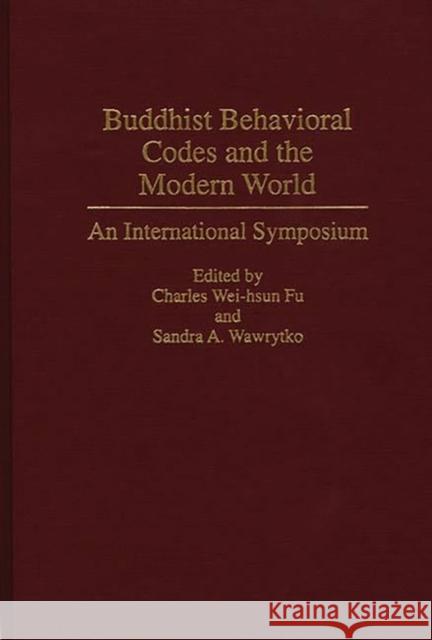Buddhist Behavioral Codes and the Modern World: An International Symposium » książka
Buddhist Behavioral Codes and the Modern World: An International Symposium
ISBN-13: 9780313288906 / Angielski / Twarda / 1994 / 352 str.
Within the scope of the English-language literature on Buddhism, the codes of behavior mandated by Buddhist doctrine represent an infrequently discussed topic. The selections here consist of essays on Buddhism by 17 scholars and practitioners, who address the ongoing evolution of Buddhist doctrine as reflected in its cultural, temporal, political, and geographical accommodations from the earliest days, to the present, and into the future. Past precedent is used as a means of clarifying the precise role of the precepts in the modern world as Buddhists face the 21st century and continue to encounter diverse cultural contexts.
Scholars, practitioners, and students alike will find instructive the theoretical as well as practical issues that are covered, including textual criticism, hermeneutics, cross-cultural studies, theories of action, psychology, death and dying, feminism, business management, challenges to the Western scientific paradigm, and religion in popular culture. Three main questions are explored from diverse perspectives: What was and is the significance of the precepts; how can they best be applied, and creatively adapted, to changing social conditions to best fulfill the original intentions of the Buddha; and how are we to determine present upayic demands to avoid violating those intentions? As many argue in these pages, there is much more at stake in the issue of sila/vinaya than simple guidelines for an obsolete lifestyle to be discarded at will. Rather, the case can be made that they represent an intrinsic part of Buddhist cultivation, even a sine qua non of successful, consummate practice.











